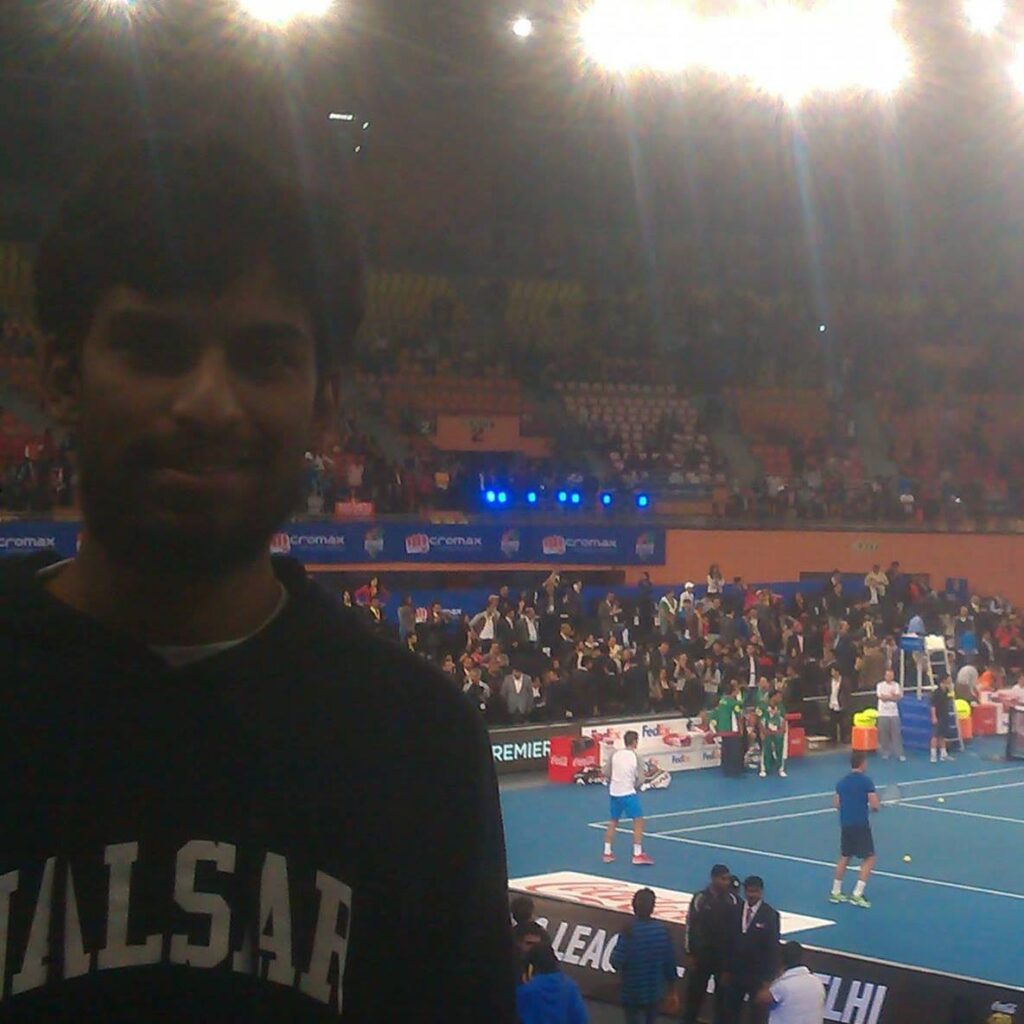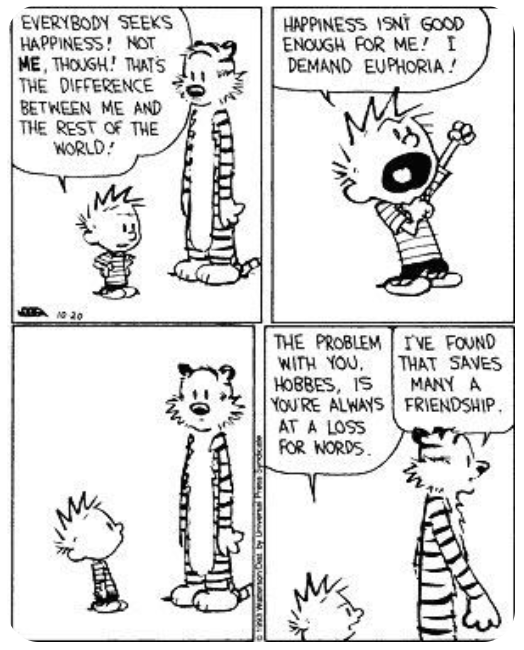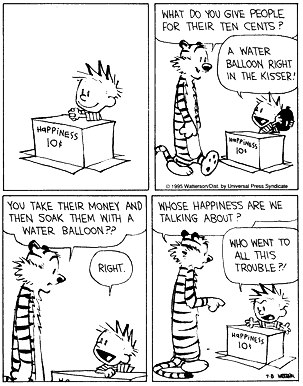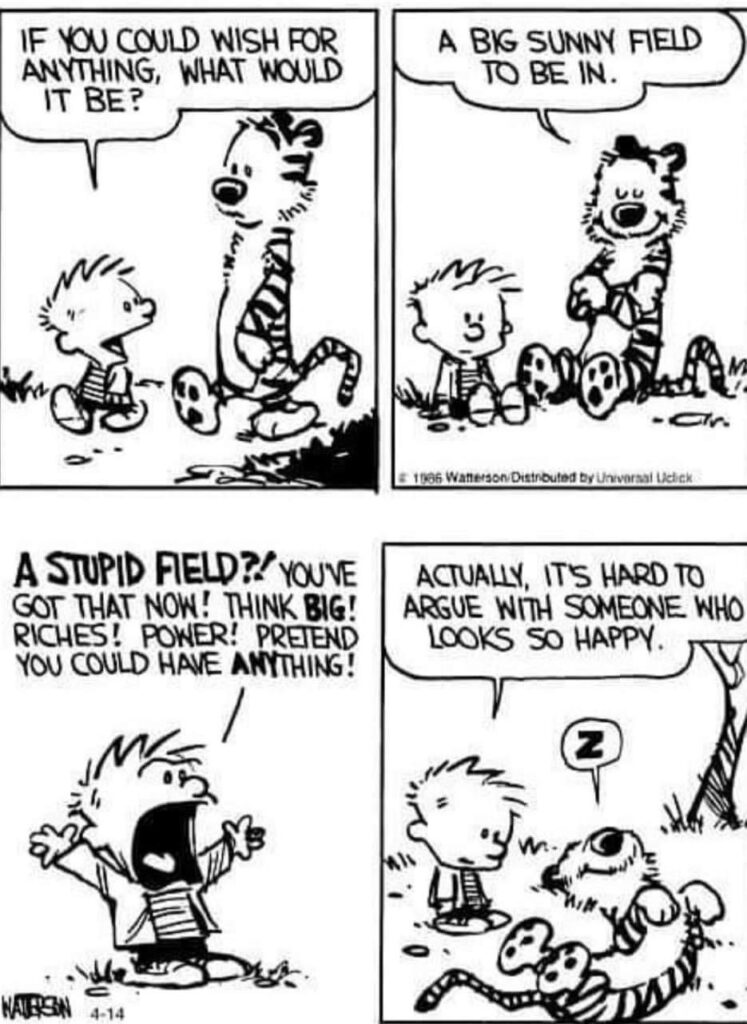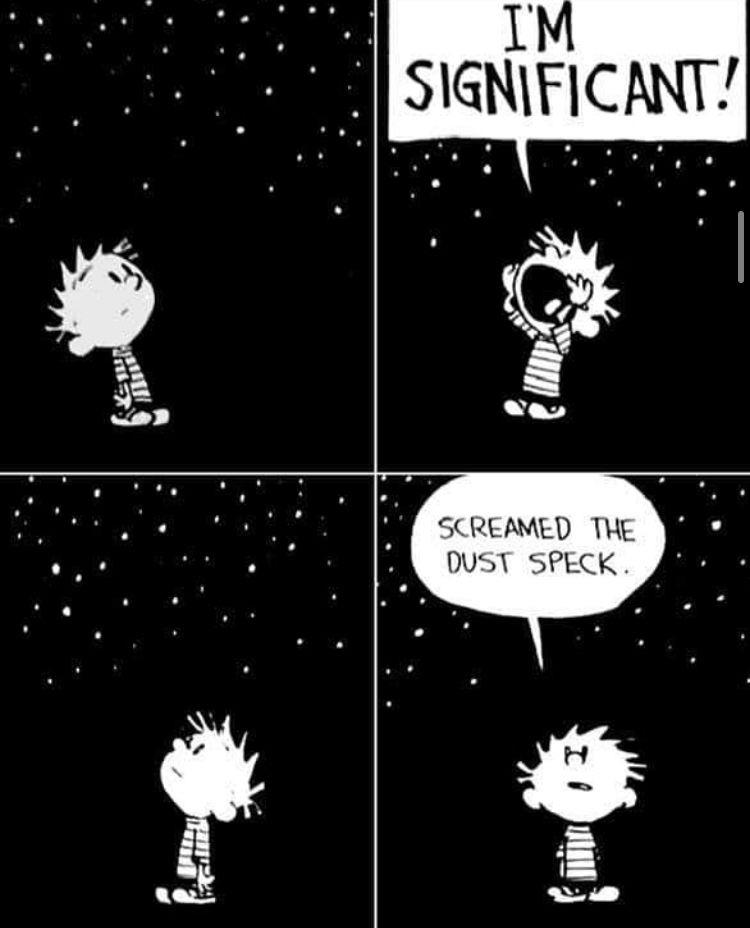It was as random as it could get. As I got fed-up with the routines, I planned to fly away to some peaceful place for a few days. I did it with Aymen who has been a great companion throughout. This is the chronology of what we both did over the five days from 24th October to 28th October.
Day One
The easiest way to reach Visakhapatnam is to fly. This flight route is special to me for a couple of reasons. First, while I stayed in Visakhapatnam for four years from 2003 to 2007, flights were considered a luxury. As someone whose age recently turned double digits, I often wondered what it must be to take a plane. Whenever we wanted to travel to Hyderabad, we always opted either Godavari Express or Visakha Express for an overnight journey. Rarely, we would also take Konark Express which had some ungodly timings.
Second reason is that the first flight I ever took in life was on the Visakhapatnam-Hyderabad route. It was the now-defunct and merged Alliance Airlines which made us wait for over 5 hours beyond its scheduled time to take us on its Boeing 737 for a one-hour ride. I loved it and was upset that it ended too quick.
Today, we flew to Visakhapatnam. We landed at 12.05 at a cute airport which has turned into an international one, unlike the last time I was here when it only had flights to couple of cities within the country.
I had pre-booked a Zoom Car which arrived on time at the airport. It is a Swift which is both appropriate in size and also comfortable. I realise now that driving on your own is an independence worth every rupee, a feature I’d make a regular in all my future tours. We zoomed straight to Araku in about four hours, passing by the picturesque valleys and slopes. The temperature dropped gradually as we increased our altitude to the point that the evening breeze at Araku was chilly.

On the way to Araku
We checked into the Haritha Hill Resort which I pre-booked due to it being the top place to stay on TripAdvisor. It was a decent room, although a little more hygiene would’ve been better. But the balcony, which was as big as the room, had an amazing view spanning the step-paddy fields in the foreground and forested hills in the backdrop. The visibility was relatively good, something that’s going to drop the next morning due to dense mist.

The view from the balcony
Day Two
We woke up early, even before the sunrise, something we’ve done on all days of this trip. That is surprising because neither my friend nor I are known for waking up early. We did our Fajr prayers and headed to the hotel breakfast. Our first stop today was Borra Caves. These are naturally-formed caves which are a result of water with high Humic acid dissolving Calcium Carbonate (limestone) and hollowing out the hill. I’ve been here before, almost 15 years ago, only that this time, they looked much smaller to me that they did the first time.

Limestone Formation inside Borra Caves
As the water drops from the very high roofs of the cave, it creates Stalactites from the above. The water dropping creates the Stalagmites on the ground. Eventually, both these merge to form pillars. As the shapes resemble several Hindu deities, the caves have a new place of worship coming up every few years. The water from the caves flows out and joins the Gowsthani River in the valley, which creates a mellow and humble view as it fills the valley.

Inside Borra Caves
The introduction at the gate of the caves said that the caves were ‘discovered’ by one Mr. William King in the year 1807. The fact that the ‘discovery’ is credited to a non-native is, in itself, offensive. It shows how the perspective these primers give out is the narrative of the colonisers, even to this day. It is also offensive to all the native inhabitants who would have frequented these caves for several centuries.

Gowsthani River in the valley adjacent to Borra Caves
As we leave the caves, we head back to Araku valley. We hunted down a place which would offer good ‘Bamboo Biriyani’ – a usual, and not so special food, whose only distinction is that it is made inside a Bamboo stalk over coals instead of a utensil. Evidently, this is more accessible and efficient for the local inhabitants, the tribal population which resides in the forests.
The Biriyani or the Chicken Kababs were not as good as they were hyped up to be. They had a distinct Bamboo odour, which I could’ve done without. It is simply a novelty in the way it is prepared, but not something that would excite the taste buds. We were glad we tried it and even more glad that it is out of the way. We had hogged up enough to make us fall asleep as early as the descent of the dusk.

Preparation of Bamboo Biriyani
Day Three
The day started with another early morning rise. With nothing planned for the day, we decided to go to a nearby village which was spoken about in several The Hindu articles on Araku. A village named ‘Baski’, about 40 minutes away from the valley. Thank God again for a self-drive car and my propensity to love driving it around, we soldiered up to leave for Baski.
As we left Araku, the roads became confusing. Google Maps made it even more confusing by showing roads where there were none, and not showing roads which we could see in front of us. We resorted to the old-fashioned ask around at every corner method. The trip itself was quite beautiful. With the cool breeze brushing past the mountain slopes, the very low density of population around, and surprisingly, the good quality roads, made it for a nice drive. We stopped by several times on the way, where I found a view resembling the Windows XP default background, plenty of ‘touch-me-not’ which we touched a lot, paddy fields planted in step-agriculture format that Araku is known for, and tiny creeks with cold water flowing through the rocks.

Step-Agriculture on the way to Baski

Windows XP Background?
Baski, in itself, is a humble village without much to differentiate from all the other villages around. But the drive made it all worth it. As we made our way back to Araku by the afternoon, we were hungry without being tired. At a random hotel, we stopped for some Prawn Biriyani, which was, better than we thought. With nothing planned again, we wondered where to head next and decided on the Tatiguda Waterfall at Anantgiri, about an hour away from Araku.

Tatiguda Waterfall at Anantagiri
The water fall was highly accessible, both at the head and at the pool below. With hardly anyone around, we could laze around digesting the lunch that filled our stomachs. With a few more picturesque step-fields of paddy around the waterfall, the view was serene and peaceful. After taking enough time to explore, we headed back to the hotel, again falling asleep by the dusk.

More Step-Fields of Paddy
Day Four
As we felt that we had done what there was to do in Araku, we changed our plans and headed back to Visakhapatnam. Doing this, we did waste some money as we had booked our hotel at Araku for all four days. However, before we left Araku, we had two small stints to do. One, we went to the Coffee Museum which gave out the history of how Arabica Coffee was found in Ethiopia, Yemen, etc. and was brought by Baba Budan to Chikmagalur, eventually reaching Araku barely 20 years ago. This also involved buying too much coffee and chocolates at the souvenir shop, the quantity of the purchase, we realised much later, was unnecessarily a lot.

Coffee Plant at the Coffee Museum
Two, we paid a visit to the Tribal Museum. Yes, a Tribal Museum. Now, when you call something a ‘museum’, isn’t there a presumption that whatever being showcased there used to exist historically and is extinct now? The name aside, what was in the museum was doubly offensive. All it had was a collection of model figures showing how the tribal population conducts their daily routine. It was surely very far from the truth. It depicted what outsiders would see and made the most stereotypical image of the tribes. We had no choice but to check-out of it the fastest we could.
With these two done, we started our drive back to Visakhapatnam. The drive was much faster as I focussed on getting to the city as soon as possible. On the way, we stopped at Galikonda Coffee Plantations which had a pretty stretch of Coffee plants growing in the canopy of Teak trees laden with the wines of Black Pepper. It was a good stop and something we would’ve almost missed. With the plants bearing green Coffee berries, the slopes made for some good pictures.

Choosing a Coffee Bean to Pluck

Zooming in on a Coffee Bean
As we reached Visakhapatnam, we headed straight to recently famed ‘Raju ka Dhaba’ on the Rushikonda Beach. It is known for its Prawn Biriyani which ran out of stock. Their Chicken was not a choice as the waiter told us explicitly that it is not Halal. He okayed the Mutton, but my appetite was not so broad as to take a risk. We resorted to their ‘plain biriyani’ with some prawns and fish fried, the safest option when the meat being Halal is under issue.
Following this, we walked the Rushikonda Beach. There is something about the sea that is always over-whelming. I have stayed in Visakhapatnam for four long years and never did I look at the sea without pausing for a few seconds. The massive water body invokes emotions that I can barely describe. I praise God for the wonder the sea is and I wish to visit it as often as I can.
In the late afternoon, we drove up to Kailashgiri Hill. It is a place very close to my heart as we would frequent it on every other weekend. The view from the Hill of the sea and the entire city is a must-see. I tried to trace out my house from the top of the Hill. I could spot the building around by the terrain, but much of what I know from 14 years ago isn’t the same anymore. We drove down the hill and headed to my house. It was a surreal feeling there. I was numb, barely able to feel much as nostalgia struck me without any warning. I went to the rooftop of the house and looked around as memories gushed in. There was barely any space between my stability and tears.
We then drove to the Andhra University campus where I visited the Tennis Courts I trained at for over two years. I even spotted my coach who was hitting rallies with a kid. With so much nostalgia bearing so heavy on me, I dismissed the idea of going up to him and saying a Hi. I watched him and several kids knock balls back and forth, and simply left when it all got too much.

Tennis Courts I used to train at
We went scouting for a hotel and found one on the RK Beach at a very convenient location. After checking in, we went to visit the Submarine Kusura Museum and the Tupelov 142 Aircraft Museum, both of which were very pleasant. We took a calm walk on the RK Beach and hit the room soon.
Day Five
We woke up late, finally back to our usual self. As my friend wanted to sleep in for longer, I took a bath, had breakfast, and went to the beach to take a stroll. The previous day’s nostalgia was deeply painful. I walked a stretch of the beach, sat around, and stared at the unending waves that are always magical to witness. From the Dolphin’s Nose on the right to Kailashgiri on the left, the visibility was clear. One could see several ships in the distance waiting for their turn to enter the narrow harbour. I headed back to my room after a couple of hours, packed up and left.
As we had a few hours left for our flight, we went to the natural habour the city is famous for. I climbed the hill where rests a great Sufi saint – Syed Ishaq Madani – who is the etymology for the name ‘Visakhapatnam’ derived from ‘Ishaqapatnam’. I offered my Zohar prayer at the Mosque here, with a heavy heart and gratefulness for the privilege and freedom I’ve been blessed with. We then climbed a nearby hill called the ‘Rose Hill’ which had a large Christian Missionary surrounded by a Mosque and a Temple. The view from both the hills was beautiful. We witnessed ships departing from the habour, being tugged away and escorted by tiny boats. I would’ve liked to stay there for much longer, but for the flight we had to catch.

Dargah of Ishaq Madani (RA)

Ship being tugged away at the harbour
With some more time left, we headed back to ‘Raju ka Dhaba’. We proved unlucky again as their Prawn Biriyani ran out again! We ate what we could find and started our drive to the airport. On the way, I stopped by at my school. The nostalgia punched me again and it was pretty strong. I made a short work of taking a picture and getting back into the car. We reached the airport, dropped the car, and headed to take our flight.

Cute Dog enjoying the waves at Rushikonda Beach
This completed a pleasant trip I am very happy that I did. If I were to do this again, I would like to do it exactly in the same order that I did this time. Until then, I’ll hide the nostalgia and cherish the memories.

















